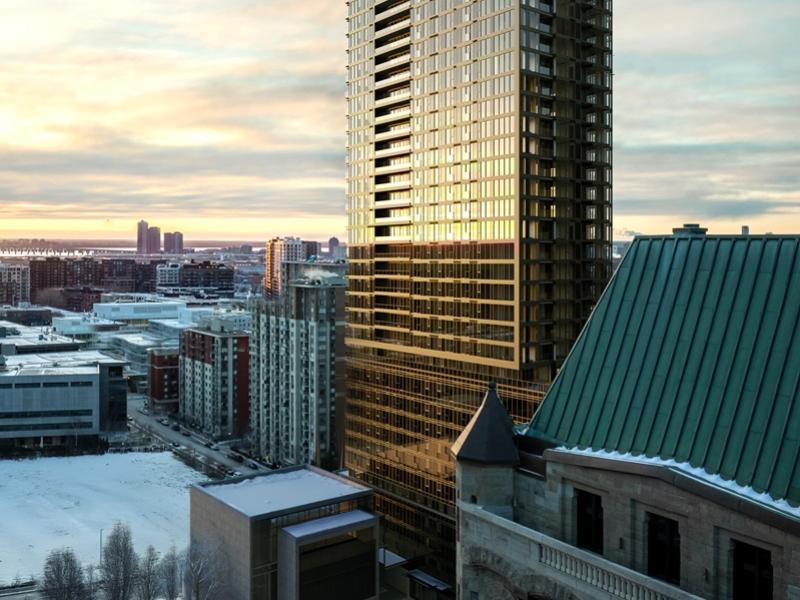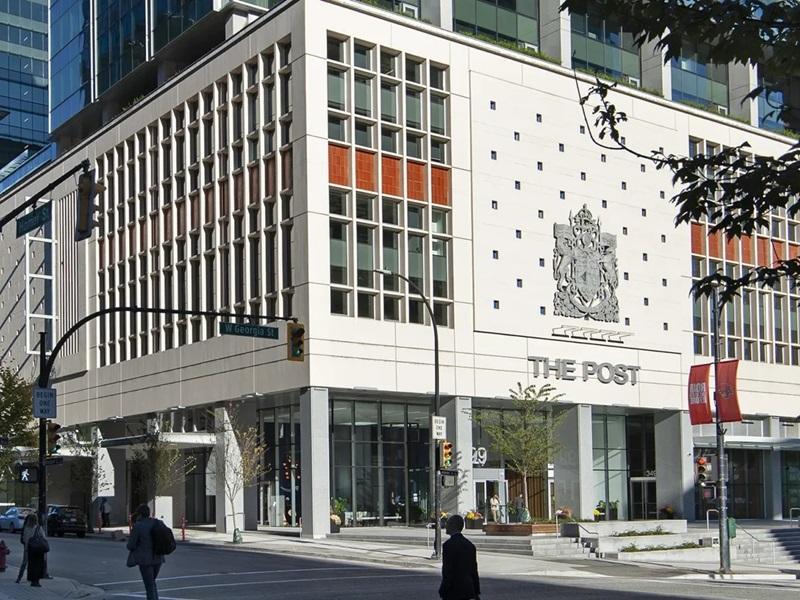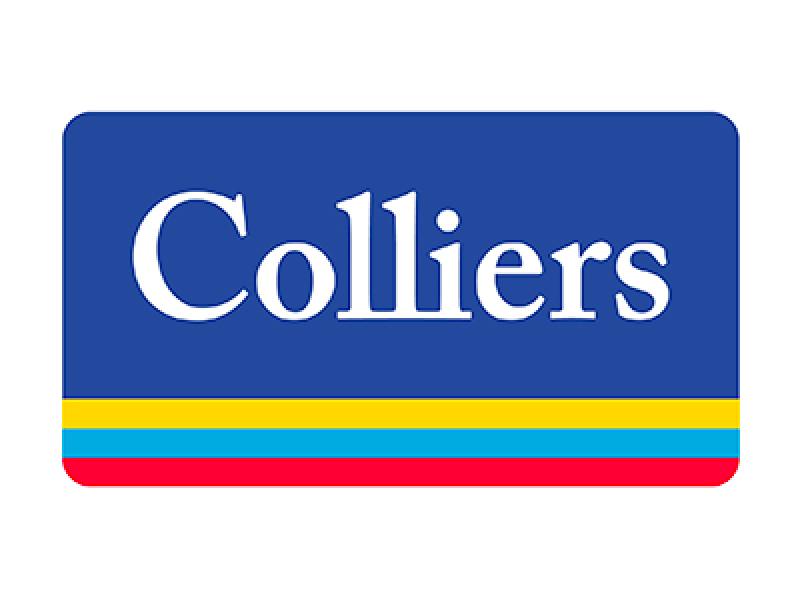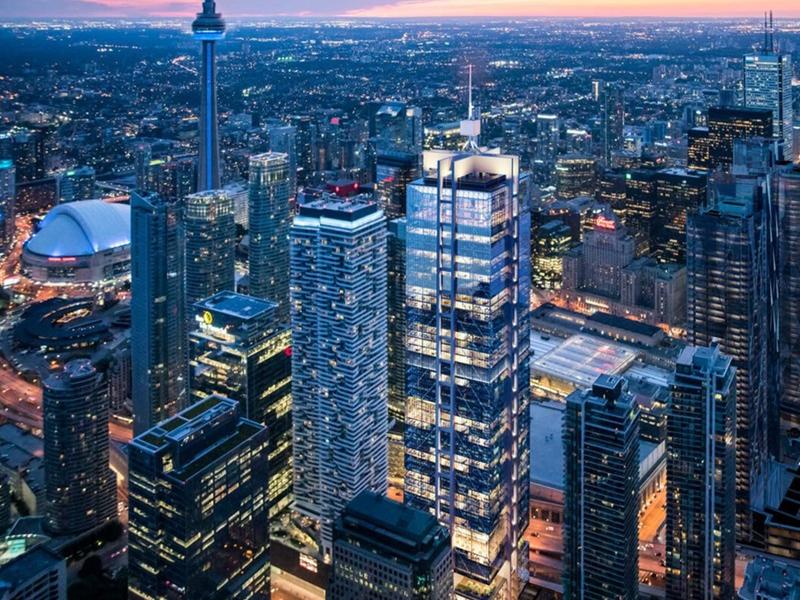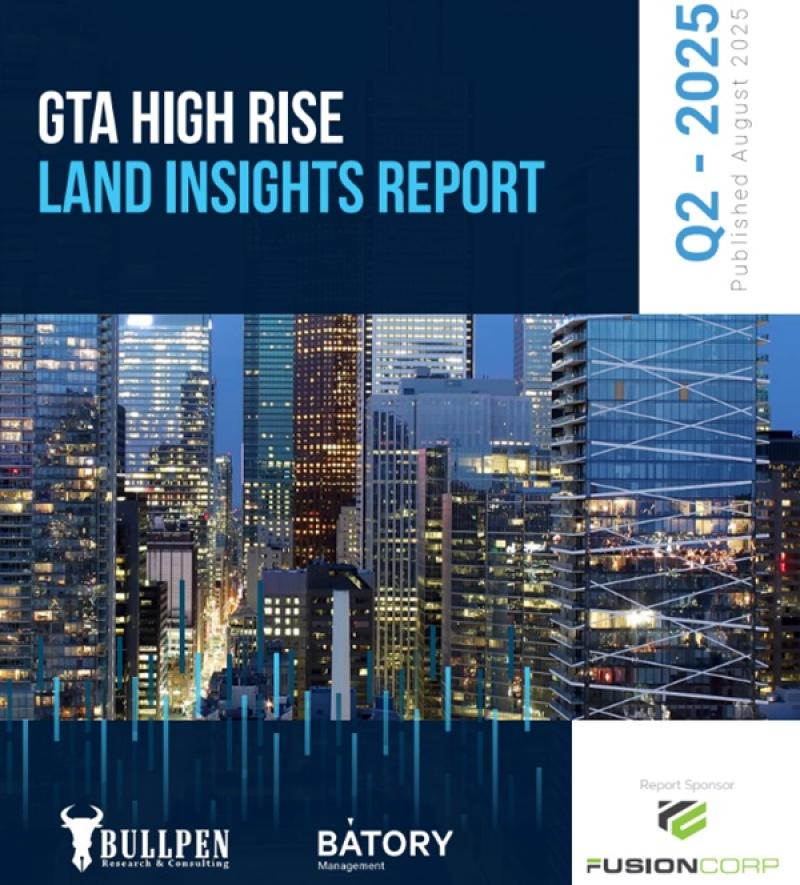 The high-density land market in the City of Toronto and its suburbs experienced a significant decline in pricing and investor sentiment in Q2 2025, according to the latest GTA High Rise Land Insights Report from Bullpen Research & Consulting and Batory Management.
The high-density land market in the City of Toronto and its suburbs experienced a significant decline in pricing and investor sentiment in Q2 2025, according to the latest GTA High Rise Land Insights Report from Bullpen Research & Consulting and Batory Management.
“It's a market in transition and everyone's trying to find the right market value to transact,” Bullpen president and owner Ben Myers told RENX.
The average transaction was priced at $52 per buildable square foot, down sharply from the $95 recorded in the first quarter.
The price per buildable square foot was $92 in the City of Toronto, down 14 per cent year over year and 37 per cent from the 2021 peak of $146. The suburbs averaged just $37, a 29 per cent drop year over year and a 38 per cent correction from the peak.
A volatile capital market, almost non-existent pre-construction condominium sales, restrictive lending conditions and weakened confidence in development feasibility are all contributing factors to the decline, according to Myers.
Mid-rise land selling for more than high-rise land
Mid-rise land in Toronto has traded for an average of $132 per buildable square foot over the past two-and-a-half years, compared to $91 for high-rise, with those figures at $118 and $78 respectively so far in 2025.
Many condo developers now prefer smaller-scale, lower-risk projects with faster approvals and more reasonable sales absorption timelines.
“With each each additional floor and more GFA (gross floor area) in a tower, it represents a little bit more risk,” Myers explained. “Because the risk becomes higher, developers often will pay less for that additional square footage.”
Zoning-approved lands have fallen out of favour, with 2025 prices down 43 per cent from the 2021 peak. Buyers are no longer paying big premiums for entitlement certainty at a time when there’s little incentive to push condo projects to market due to low sales.
“The other issue is we've had very few projects launched from the start of 2023 to the middle of 2025,” Myers said. “That's allowed many more properties to go through the entitlement process and get full approval.
“So now there's more of that land potentially out there and available to purchase. It's supply and demand. The more supply there is of approved properties, the premium is going to go down in a marketplace.”
Low-cost transactions rose
The share of transactions below $60 per buildable square foot in the City of Toronto rose to 36 per cent in Q2, compared to 20 per cent between 2018 and 2023. At the same time, the proportion of deals exceeding $140 per buildable square foot has dropped significantly.
“The expectation of further distress is another factor that's probably on the mind of people that have capital and are looking to buy,” Myers said. “They’ll keep waiting and maybe there will be even more deals in the future.
“Let's not jump on something that may be a good deal, when maybe a great deal is coming up in the next six to 18 months.”
Shift to purpose-built rentals
While confidence in the pre-construction condo market is at its lowest level since the mid-1990s, the longer-term outlook for the rental sector is very strong despite a recent rent pullback.
There’s been a shift toward more purpose-built rental apartment development, even with projects originally envisioned as condos, spurred by government incentives such as the GST exemption and financing solutions offered by the Canada Mortgage and Housing Corporation (CMHC).
“Every client that I talk to that’s underwriting a rental apartment project is looking very closely at the various CMHC financing programs that they have to offer and many have said, if these programs didn't exist, their projects wouldn’t be feasible,” Myers said.
Lack of new supply is looming
With very few new multifamily construction starts happening, the overhang of supply from launches earlier in the decade will end in late 2027 or early 2028.
Based on the current under-construction inventory and expected starts, the Greater Toronto Area will see delivery of less than 10,000 condo and rental apartments in 2028 -- when the market will likely need at least 25,000 to satisfy demand.
That significant under-supply is expected to persist from 2028 to 2033 and could extend longer as not only will construction be down but projects will likely be smaller in scale to reduce risk and make property management easier.
“A lot of condo developers got their sites approved for a certain amount of GFA, which would work in a pre-construction condo investor marketplace, but it may not be the best in terms of a rental apartment,” Myers said. “If you have 650 or 750 units, and you've got to lease them all up in a year, that's a lot more difficult to do.”
Myers projects rents will essentially remain flat, or could even fall by one or two per cent over the next year, while growth will exceed seven per cent in 2028 and could reach double digits in 2029 and 2030 due to the lack of supply.


